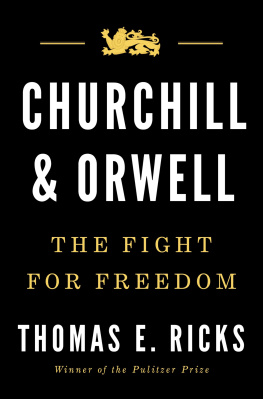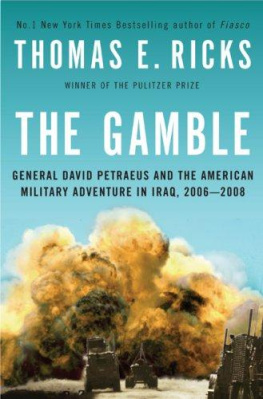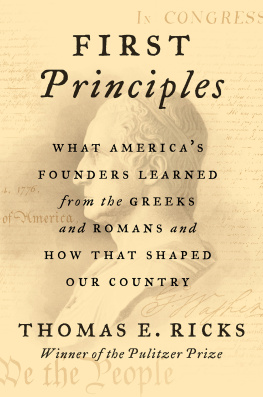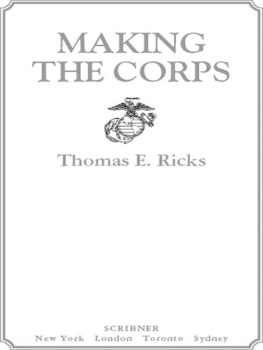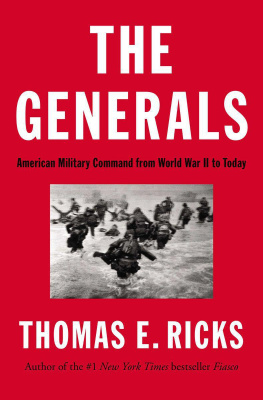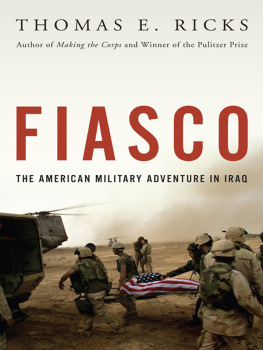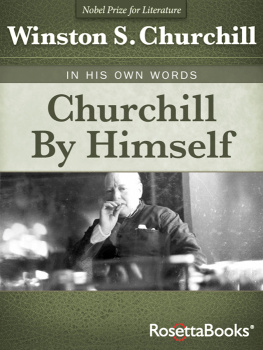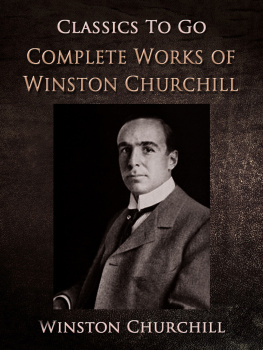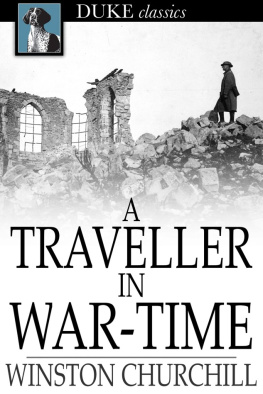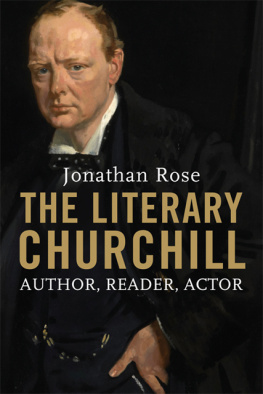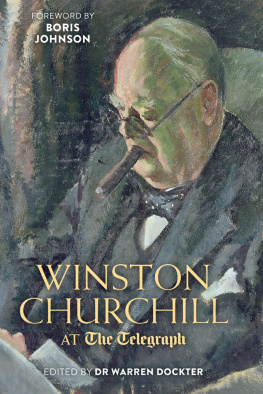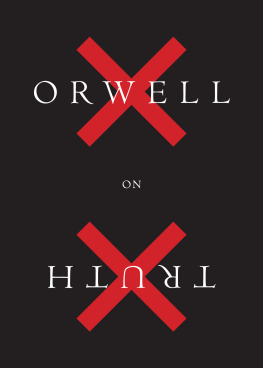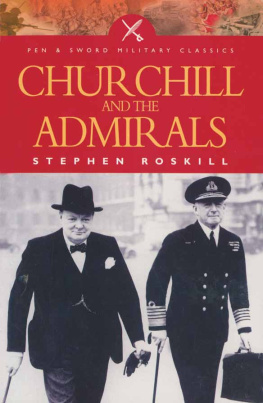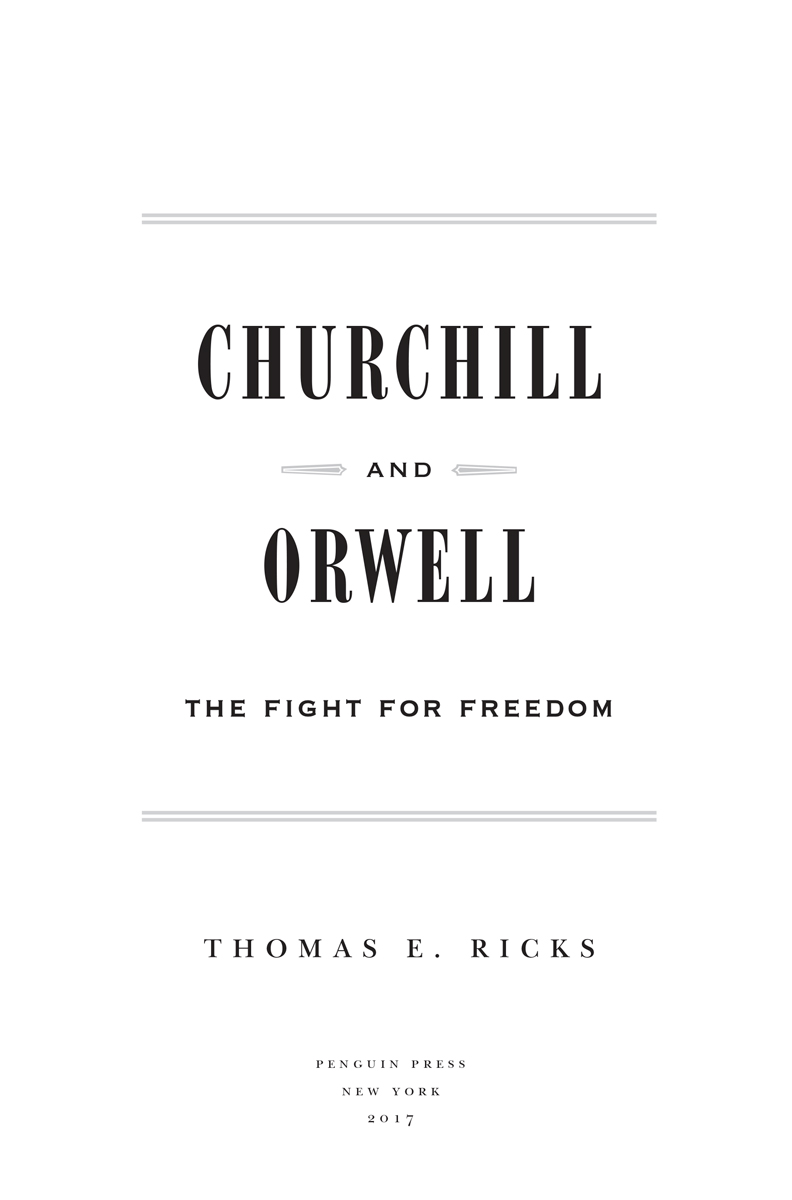Thomas E. Ricks - Churchill and Orwell: The Fight for Freedom
Here you can read online Thomas E. Ricks - Churchill and Orwell: The Fight for Freedom full text of the book (entire story) in english for free. Download pdf and epub, get meaning, cover and reviews about this ebook. year: 2017, publisher: Penguin Press, genre: Detective and thriller. Description of the work, (preface) as well as reviews are available. Best literature library LitArk.com created for fans of good reading and offers a wide selection of genres:
Romance novel
Science fiction
Adventure
Detective
Science
History
Home and family
Prose
Art
Politics
Computer
Non-fiction
Religion
Business
Children
Humor
Choose a favorite category and find really read worthwhile books. Enjoy immersion in the world of imagination, feel the emotions of the characters or learn something new for yourself, make an fascinating discovery.
- Book:Churchill and Orwell: The Fight for Freedom
- Author:
- Publisher:Penguin Press
- Genre:
- Year:2017
- Rating:4 / 5
- Favourites:Add to favourites
- Your mark:
Churchill and Orwell: The Fight for Freedom: summary, description and annotation
We offer to read an annotation, description, summary or preface (depends on what the author of the book "Churchill and Orwell: The Fight for Freedom" wrote himself). If you haven't found the necessary information about the book — write in the comments, we will try to find it.
A dual biography of Winston Churchill and George Orwell, who preserved democracy from the threats of authoritarianism, from the left and right alike.
Both George Orwell and Winston Churchill came close to death in the mid-1930sOrwell shot in the neck in a trench line in the Spanish Civil War, and Churchill struck by a car in New York City. If theyd died then, history would scarcely remember them. At the time, Churchill was a politician on the outs, his loyalty to his class and party suspect. Orwell was a mildly successful novelist, to put it generously. No one would have predicted that by the end of the 20th century they would be considered two of the most important people in British history for having the vision and courage to campaign tirelessly, in words and in deeds, against the totalitarian threat from both the left and the right. In a crucial moment, they responded first by seeking the facts of the matter, seeing through the lies and obfuscations, and then they acted on their beliefs. Together, to an extent not sufficiently appreciated, they kept the Wests compass set toward freedom as its due north.
Its not easy to recall now how lonely a position both men once occupied. By the late 1930s, democracy was discredited in many circles, and authoritarian rulers were everywhere in the ascent. There were some who decried the scourge of communism, but saw in Hitler and Mussolini men we could do business with, if not in fact saviors. And there were others who saw the Nazi and fascist threat as malign, but tended to view communism as the path to salvation. Churchill and Orwell, on the other hand, had the foresight to see clearly that the issue was human freedomthat whatever its coloration, a government that denied its people basic freedoms was a totalitarian menace and had to be resisted.
In the end, Churchill and Orwell proved their ages necessary men. The glorious climax of Churchill and Orwell is the work they both did in the decade of the 1940s to triumph over freedoms enemies. And though Churchill played the larger role in the defeat of Hitler and the Axis, Orwells reckoning with the menace of authoritarian rule in Animal Farm and 1984 would define the stakes of the Cold War for its 50-year course, and continues to give inspiration to fighters for freedom to this day. Taken together, in Thomas E. Rickss masterful hands, their lives are a beautiful testament to the power of moral conviction, and to the courage it can take to stay true to it, through thick and thin.
Thomas E. Ricks: author's other books
Who wrote Churchill and Orwell: The Fight for Freedom? Find out the surname, the name of the author of the book and a list of all author's works by series.

